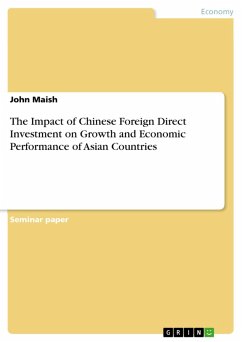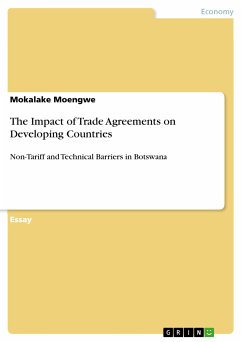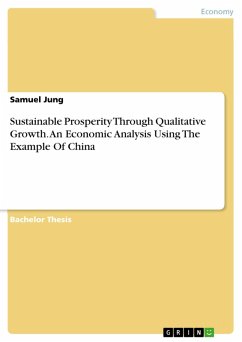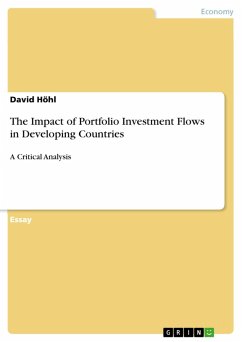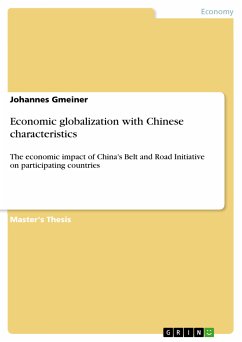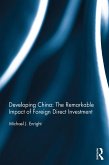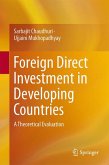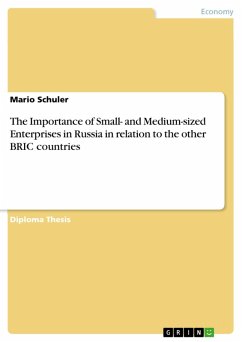Seminar paper from the year 2021 in the subject Economics - International Economic Relations, grade: 3.0, University of California, Irvine, course: Asian Studies, language: English, abstract: What is the impact of Chinese foreign direct investment on the growth and economic performance of Asian countries? In recent decades, China has progressively become one of the nations with the highest foreign direct investment (FDI) levels. The country has attracted more than $1.5 trillion in FDI during the last three decades. Notably, the large volumes of FDI inflows have promoted Chinese economic growth in terms of capital creation, export expansion, increased competition, employment establishment, and technology transfer. There exists a broad range of literature discussing the impact of FDI on economic development. Amongst those studies, it is universally agreed upon that FDI positively influences the economic growth of a country and a region. Still, some researchers have found that FDI leads to negative effects on the economic growth of a host nation. Only a few studies have focused on specific FDI from one nation or the influence on diverse developing countries. As such, my study aims to fill gaps within this research. The proposed study examines the impact of Chinese-specific FDI on the growth and economic performance in six Asian states - Singapore, Japan, South Korea, Malaysia, the Philippines, and Indonesia. The research will use a cross-country log-linear regression, analyzing the data from 2010 to 2019. To my understanding, no study has specifically examined the effect of Chinese FDI on growth and economic performance using a similar time range. The data from the selected six Asian countries will help identify the variations of FDI on the economic development of the entire region. I will contain all relevant data for all nations within the panel data set. By focusing on these countries and the particular time range, I will help improve the existing literature.
Dieser Download kann aus rechtlichen Gründen nur mit Rechnungsadresse in A, B, BG, CY, CZ, D, DK, EW, E, FIN, F, GR, HR, H, IRL, I, LT, L, LR, M, NL, PL, P, R, S, SLO, SK ausgeliefert werden.

